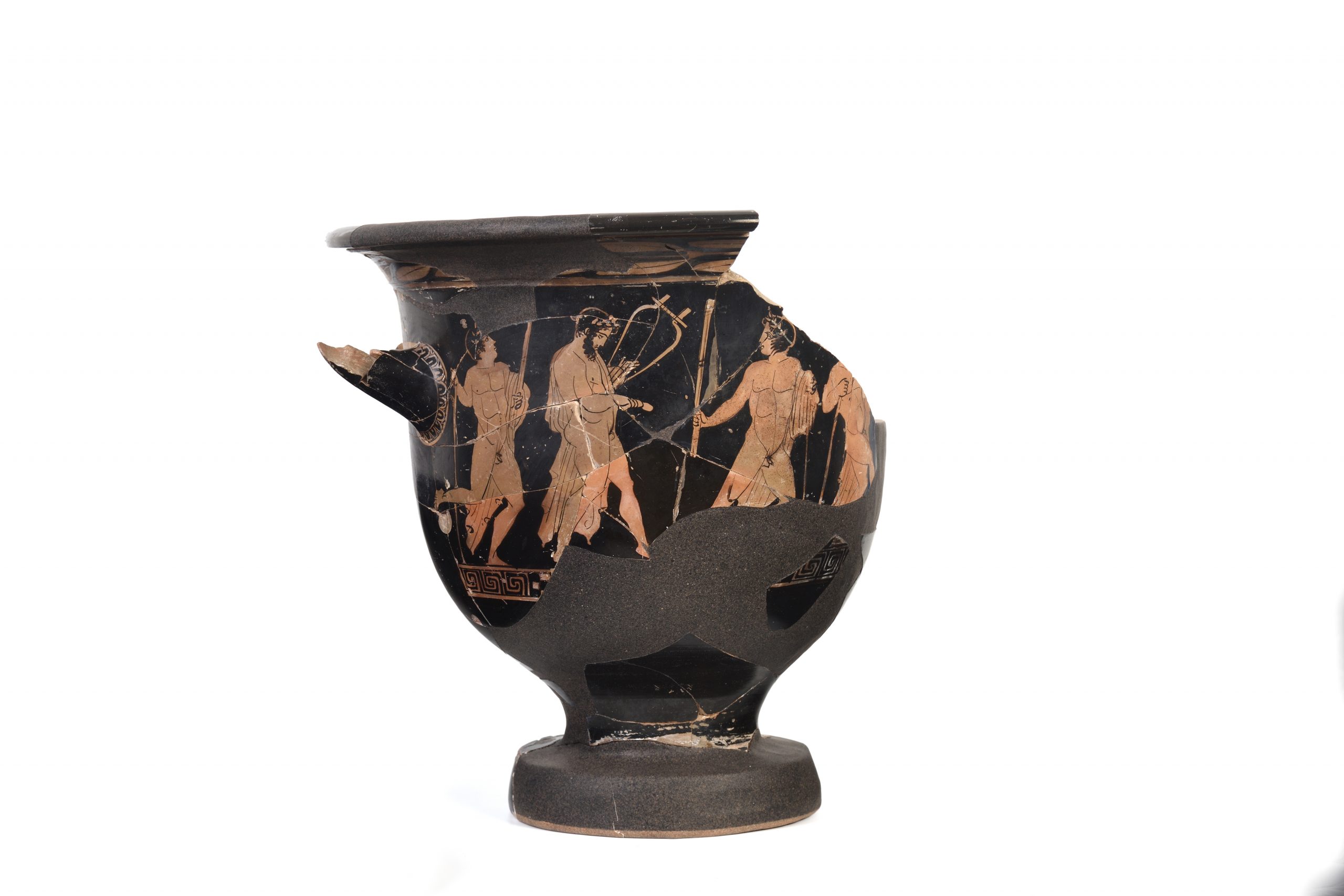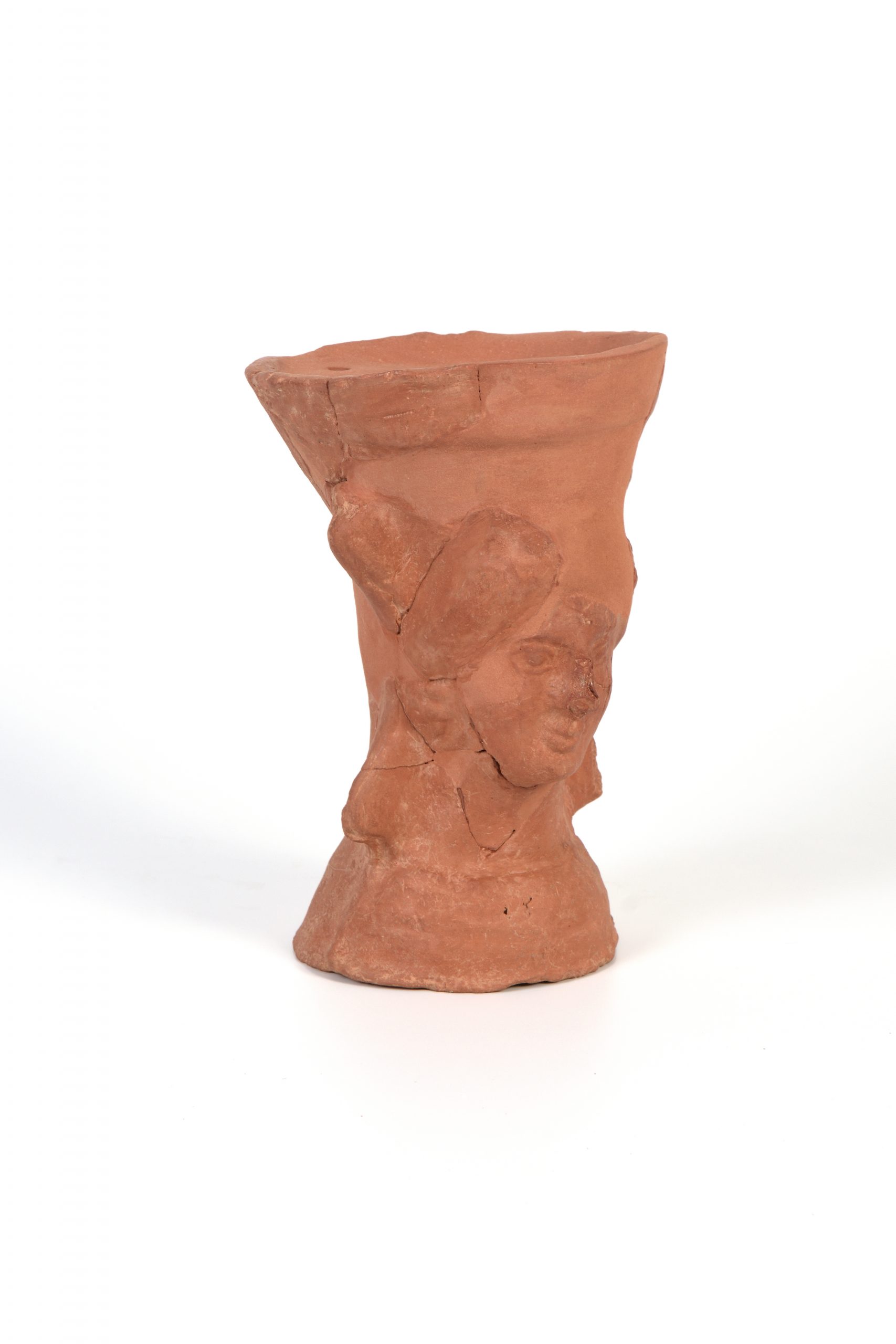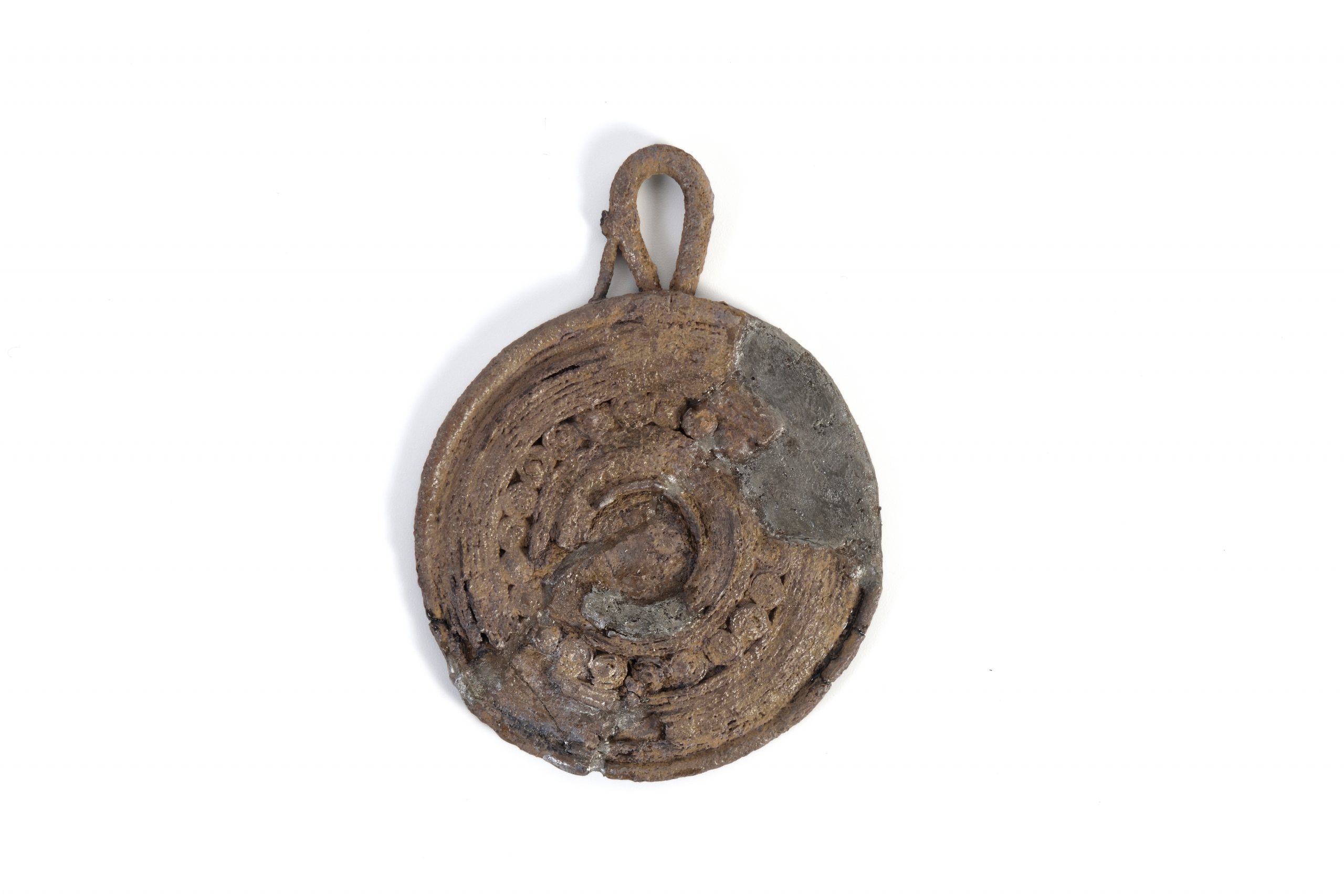- Object type
- kalathos
- Production date
- -200
- Fabric
- common Iberian painted pottery (Fontscaldes)
- Culture
- Protohistory and Iberian world
- Discovery location
- Mas Castellar
- Materials
- pottery
- Township
- Pontós (Europa, Espanya, Catalunya, Girona, Alt Empordà)
- Technique
- wheel-thrown
- Where is it?
- MASPG
- Dimensions
- 285 x 315 mm






